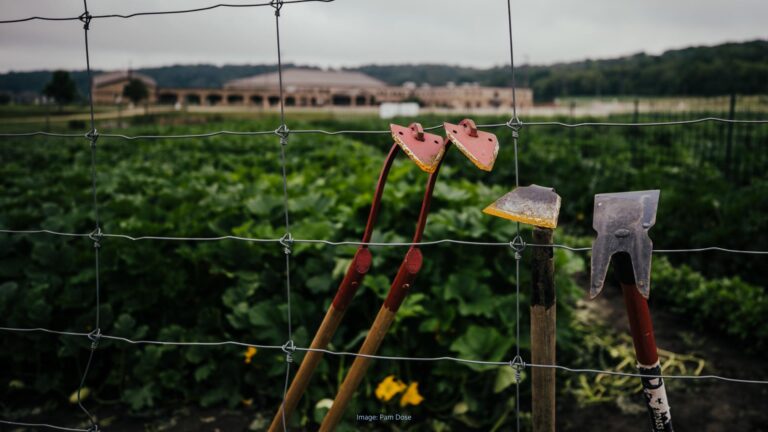Stewardship 101: Recognizing God’s Ownership
August 13, 2024
Katherine Schultz
Understanding stewardship requires us to grasp a fundamental truth: God owns it all. This principle, deeply rooted in Scripture, serves as the cornerstone of our approach to life. As we explore the concept of stewardship through the lens of biblical wisdom and practical application, we are invited to recognize the profound implications of God’s ownership in every aspect of our existence.
Biblical Foundation of Stewardship
In Genesis 1:26-28, we encounter God’s mandate for humans to steward the earth, signifying our role as caretakers entrusted with His creation. Psalm 24:1 echoes this sentiment, affirming that “The earth is the Lord’s, and everything in it.” Moreover, the Parable of the talents in Matthew 25:14-30 illustrates the importance of faithful stewardship, highlighting the responsibility we bear in managing the resources bestowed upon us by God.
Stewardship in Finances
This is perhaps the most obvious way we should practice stewardship, but let’s look at a biblical perspective briefly. Luke 16:10-12 underscores the significance of faithfulness in managing finances, emphasizing that those who are faithful in small matters will be entrusted with greater responsibilities. Similarly, 1 Corinthians 4:2 reinforces the call to be faithful stewards of God’s resources. Practical tools like You Need A Budget (Y-NAB) (yup, that’s unusual for me, but it’s a referral link if you want to use it) and the financial principles espoused by Dave Ramsey offer valuable guidance, aligning our financial practices with God’s ownership.
Stewardship in Relationships
As articulated in 1 Peter 4:10, we are encouraged to utilize our gifts to serve others, recognizing them as blessings from God. Colossians 3:23-24 further underscores the importance of serving others as unto the Lord, emphasizing the transformative impact of honoring God’s ownership on our interactions with fellow beings.
Stewardship in Time Management
Ephesians 5:15-16 urges us to make the most of our time, advising, “Be very careful, then, how you live—not as unwise but as wise, making the most of every opportunity, because the days are evil.” Similarly, Psalm 90:12 prompts us to pray for wisdom in managing our time, stating, “Teach us to number our days, that we may gain a heart of wisdom.”
Managing our time wisely is crucial in demonstrating our acknowledgment of God’s ownership over our lives. It involves recognizing that every moment is a gift from God and should be used to fulfill His purposes. This means evaluating how we spend our days and ensuring that our activities align with His will. Prioritizing time according to God’s agenda requires intentionality and discernment, as we seek to understand His priorities and reflect them in our daily routines.
Practical steps to manage time effectively include setting goals that align with our faith, creating schedules that prioritize important tasks, and avoiding activities that do not contribute to our spiritual growth or the well-being of others. For instance, dedicating time for prayer, Bible study, and fellowship with other believers.
Additionally, recognizing God’s ownership in our time management encourages us to be good stewards of the opportunities He provides. This means being diligent in our work, making time for rest, and being available to serve others as needs arise.
Moreover, cultivating a heart of gratitude for the time we have been given can transform our perspective. When each day is a gift from God, we are more likely to use it wisely. This mindset fosters a sense of responsibility and urgency to make the most of every moment, knowing that our time on earth is limited and should be invested in eternal pursuits. Practical tools like the Full Focus Planner and the Reclaim.ai smart calendar tool can help us be better stewards of our time.
Stewardship in Work and Career
Proverbs 16:3 tells us to commit our work to the Lord, recognizing His sovereignty in our vocational pursuits. This highlights the importance of seeking God’s guidance and approval in our work-related decisions. When we commit our work to God, we are essentially placing our trust in His plan for our lives, believing that He will guide and direct our paths.
Similarly, Colossians 3:17 encourages us to do everything in the name of the Lord Jesus, integrating our faith into the fabric of our daily work practices. This implies that our work is not just a means of earning a living but an act of worship and service to God. By working with integrity, excellence, and a servant’s heart, we reflect God’s character to those around us.
Moreover, acknowledging God’s ownership in our professional endeavors infuses purpose and meaning into our labor. When we see our jobs as platforms for ministry and witness, we are more likely to pursue excellence and integrity, knowing that our ultimate accountability is to God. This perspective transforms mundane tasks into meaningful activities, as every action is performed with the awareness that we are serving God and advancing His kingdom. It also encourages us to seek opportunities to bless others through our work, whether by providing exceptional service, fostering a positive work environment, or using our influence to promote justice and compassion.
Furthermore, integrating faith into our work can provide comfort and strength during challenging times. Knowing that God is in control and has a purpose for our careers can help us navigate setbacks and uncertainties with hope and resilience. It also prompts us to seek His wisdom and guidance in making career decisions, trusting that His plans for us are good.
Stewardship in Creation Care
Genesis 2:15 underscores our responsibility to care for the earth, acknowledging it as God’s creation entrusted to our stewardship. Additionally, Romans 8:19-21 emphasizes creation’s eager anticipation of restoration, compelling us to steward its resources responsibly. By practicing mindful stewardship of the environment, we honor God’s ownership and contribute to the flourishing of His creation.
Not only in the environment, but in all our possessions, we need to be good stewards. It means taking care of what God has given us with the goal of using it to further the Kingdom of Heaven. So we shouldn’t be wasteful, or selfish, or possessive of anything.
But it also means we need to have a clear understanding of the priorities God has laid out in the greatest commandments: we need to love Him more than anything he has created. And we need to love other people more than anything else in the creation. That will help us to keep from making an idol out of the world, or anything in it. We are caring for it because He gave us that responsibility. So we need to remember He owns it in the first place.
Now What?
As we reflect on the profound implications of recognizing God’s ownership in all aspects of life, we can go on a journey of deep stewardship, which is only one aspect of a person’s worldview. But it has implications in our beliefs, behaviors, and attitudes – the three dimensions of worldview.
We are convinced of the immediate relevance of developing a 3-dimensional and biblical worldview in students so that they have a firm foundation of beliefs that they live out in their daily behavior as they continue with an attitude that orients their heart toward the Lord Jesus Christ throughout their lives.
- What Is the 3-D Worldview Survey?
- Take the 3-D Worldview for yourself
If you haven’t yet used the 3-D Worldview Survey with your class, check out the pdf below for some questions to get you started.
#3dworldview #biblicalworldview #assessingworldview





